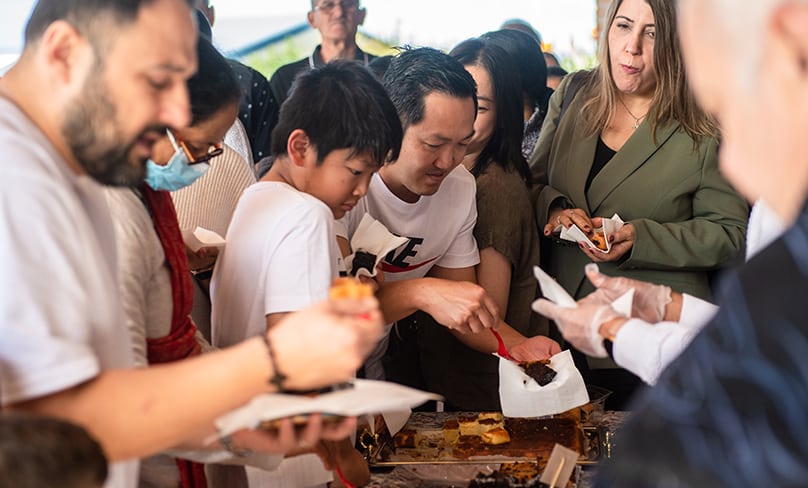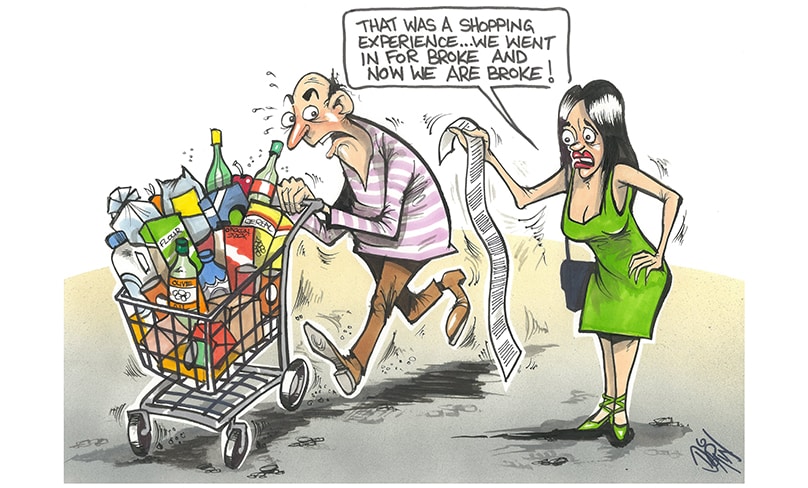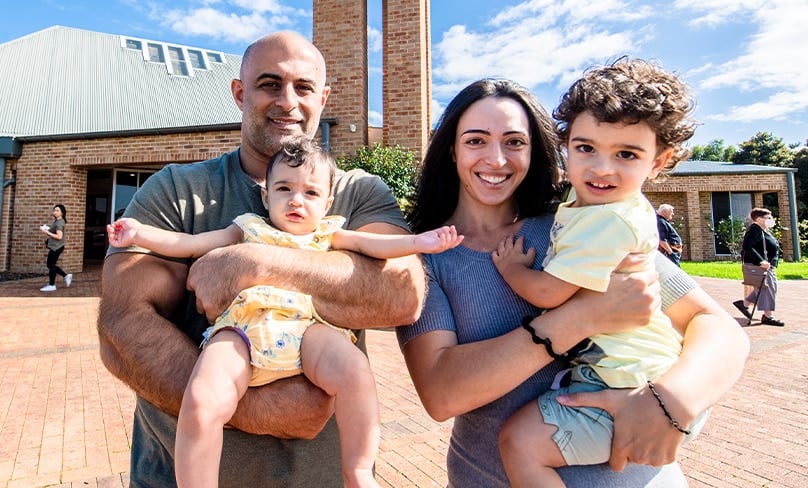
As Australians prepare to go to the polls in the federal election on 21 May, The Catholic Weekly has sat down with families in south-west Sydney who are pleading with the major political parties to do more to ease the crippling financial pressures they’re facing amid a soaring cost of living over recent years.
Over morning tea after the 10am Sunday Mass at Holy Spirit parish in Carnes Hill, the families agree that the time they spend at Mass each week is a welcome relief to distract them from the day-to-day pressures they are battling from record high petrol costs and grocery bills, as well as the fear of further interest rate rises over coming months.
In the federal electorate of Werriwa, once held by former Labor leaders Gough Whitlam and Mark Latham, the Carnes Hill parishioners say they are bitterly disappointed in what they see as a gross failure on the part of both sides of politics to put bickering aside and work together to address the cost of living crisis.
For young couple, Mario and Frances Isaac, the weekly struggle to balance their household budget on a single income in the outer-suburbs of Sydney has definitely got harder this year.
Mario is a teacher with students with special behavioural needs in Penrith and his weekly petrol bill has doubled from $60 to $120 each week, not to mention the $87 a week he pays in tolls to work using the M7 freeway.
“A year ago we would be paying around $150 for our weekly groceries compared with easily $250 now for the same basket of goods.”
Frances is at home caring for their two young children, Isabel and Emmanuel and she said like many families, they’re struggling with the recent spike in grocery prices.
“You come away from the supermarket with three or four bags of groceries and that will easily set you back $200 dollars”, she has told The Catholic Weekly.
“A year ago we would be paying around $150 for our weekly groceries compared with easily $250 now for the same basket of goods”.
The steep rise in the cost of groceries and other consumer goods is being driven by the highest growth in inflation in 20 years, as the floods in northern NSW push up the cost of produce, coupled with the economic uncertainty triggered by the war in Ukraine and the COVID-19 pandemic.
While inflation has surged to 5.1 percent, wages are not keeping pace and many families around Australia believe they’re going backwards financially.

“As a teacher, we’re pushing for a two percent pay rise, but if inflation is at five percent, then we’ll just keep going backwards until government steps in to address it”, Mario Isaac said.
In its federal budget in late March, the Morrison government halved the fuel excise until 28 September in a bid to relieve pressure on consumers.
But ongoing inflationary pressures and the lingering conflict in Ukraine leave some of the families sceptical about petrol prices in the longer term, regardless of who wins the May 21 election.
Holy Spirit Carnes Hill parishioner Muldoon Tofele has struggled with only sporadic work since the COVID-19 pandemic began and said he has been fortunate to secure a full-time job as a road safety worker less than a month ago.
The uncertainty has left his wife Bianca as the family breadwinner since the pandemic began, financially supporting their three children, Eric, Carolina and Olivia who attend local Catholic primary and secondary schools.
“Our groceries have soared from $250 to at least $350 per week and yet I have only received a pay rise of one and a half percent last year, which was my first pay increase in five years.”
Bianca Tofele who works as an account manager with an apprenticeship centre, said pay rises have been failing to keep pace with the soaring cost of living.
“Normal standard items like milk and bread have gone up significantly and vegetables have doubled in price”, Mrs Tofele explains.
“Our groceries have soared from $250 to at least $350 per week and yet I have only received a pay rise of one and a half percent last year, which was my first pay increase in five years”.
“I plan ahead for the future and salary sacrifice 10 percent of my wage into additional superannuation contributions because you can’t rely on a pension to get by in your old age”, she adds.
“Compulsory superannuation should be going up and companies contributing more to plan ahead for the future”.

Carnes Hill, like many suburbs in western and south-western Sydney is made up of many families under mortgage stress.
Data from the 2016 census showed around 43 percent of residents in the federal electorate of Werriwa had a mortgage on their property and 28 percent pay rent on their property.
The high rate of inflation is driving growing speculation that the Reserve Bank will announce a number of increases in official interest rates over coming months, placing further financial pressure on families.
At its monthly board meeting in May, the RBA announced its first increase in the official cash rate for over a decade; raising the cash rate by a quarter of a percentage point to 0.35 percent. The four major banks all quickly passed this increase on to home loan customers.
Some economists are predicting at least a one percent rise in interest rates over coming months which could add around $480 extra into the monthly mortgage for a median house in Sydney.
Holy Spirit Carnes Hill parishioners Joji and Rintu Jacobs have a mortgage on their property and are anxious about the prospect of interest rate rises as they balance the cost of supporting their two children who attend local Catholic schools, Abam and Merisa.
“As we transition away from fossil fuels to meet emission reduction targets, the cost of fuel I believe is only likely to keep rising.”
Mr and Mrs Jacobs say the move towards hybrid working arrangements has helped cut their commuting cost each week as they both work a number of days each week from home, avoiding the two hours of commuting on the train to their CBD offices.
But Mr Jacobs believes the high cost of petrol is likely to be a problem for some time, regardless of what changes governments make to fuel excise.
“As we transition away from fossil fuels to meet emission reduction targets, the cost of fuel I believe is only likely to keep rising”, he told The Catholic Weekly.
Mr and Mrs Jacobs believe both sides of politics should be doing more to support families, struggling with the high cost of living and who want to ensure their children can access a good Catholic education and register for sport and other activities on weekends.
Bianca Tofele said the escalating cost of living has meant her family has had to cut back the recreational activities for their children to be able to balance the household budget.
“My two daughters used to play netball and indoor soccer each week, but we’ve had to cut that back to just playing soccer and similarly my son used to play soccer and rugby league and he is now just playing soccer as well because the registration fees were just too much for us”.
Related
Election 2022: Experts warn of inevitable fall in living standards.
